AICEE shares NSYSU’s epidemic prevention measures with the world!
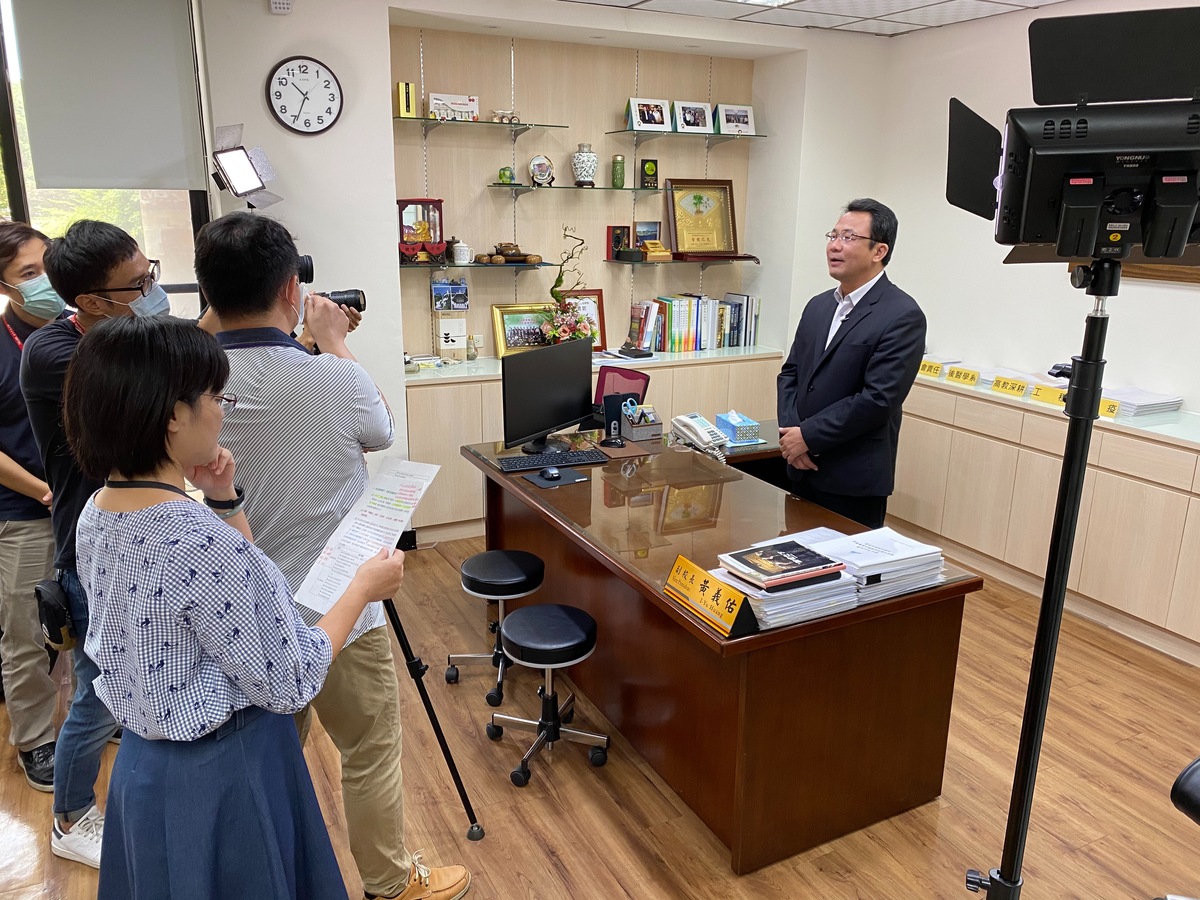
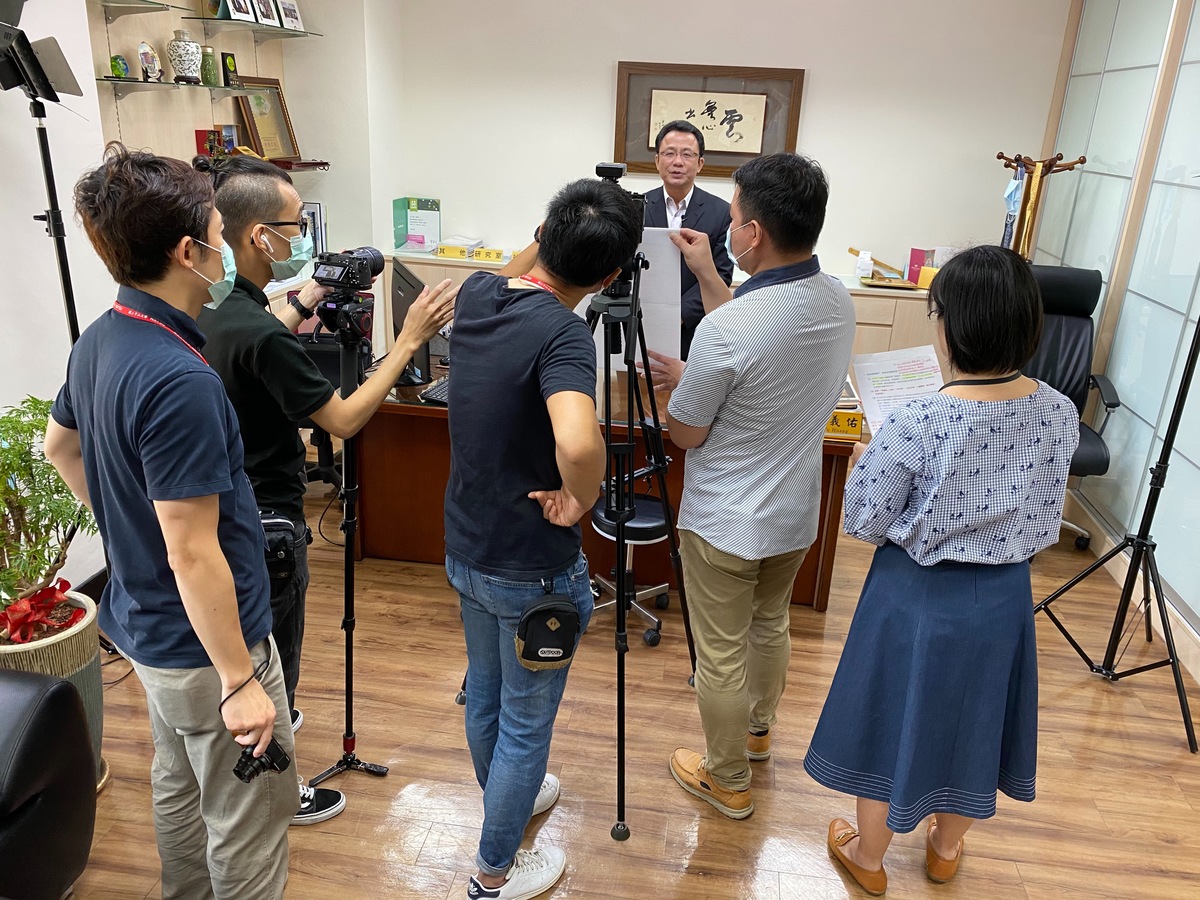
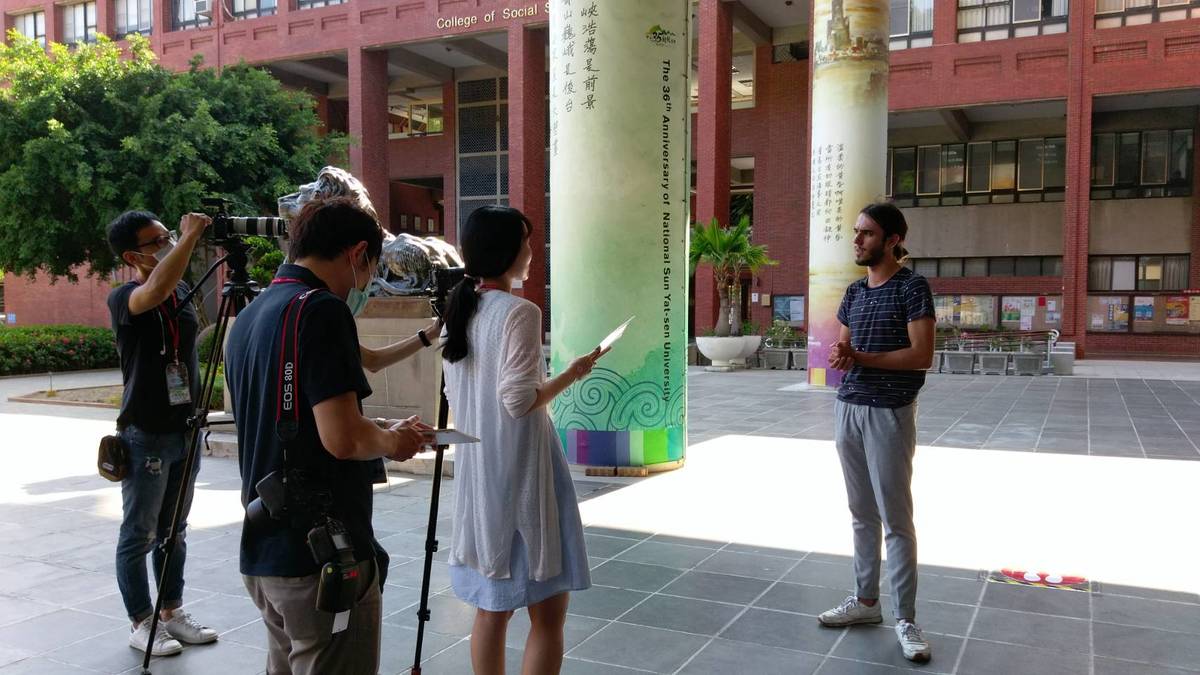
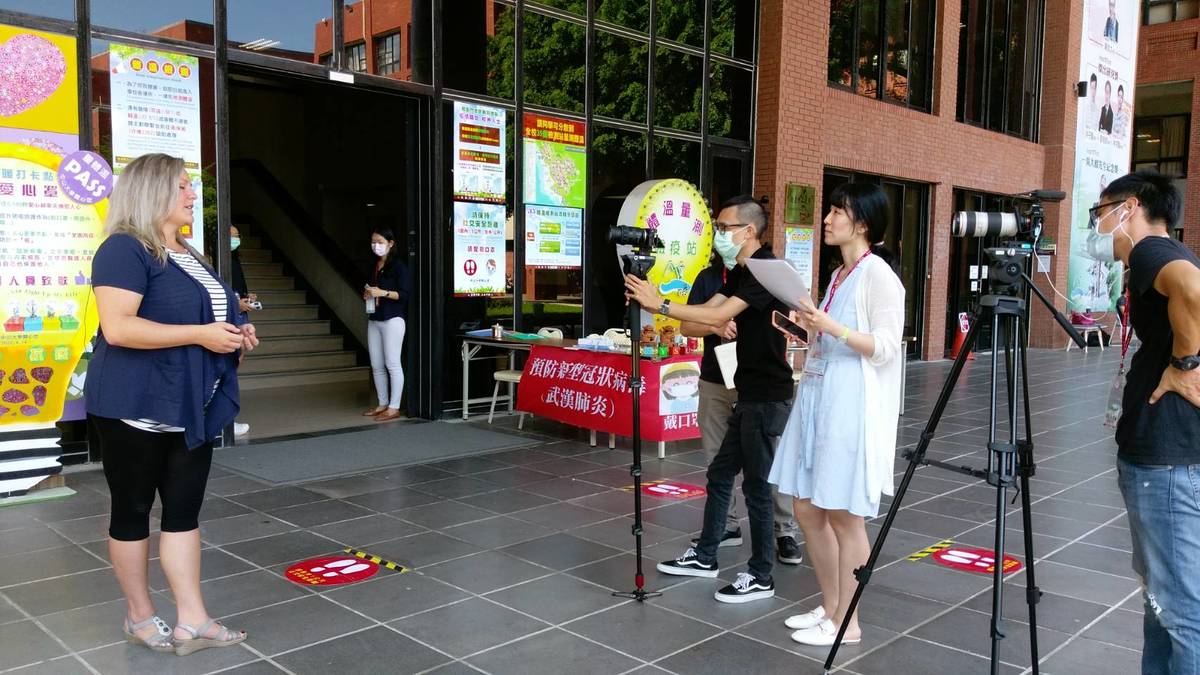
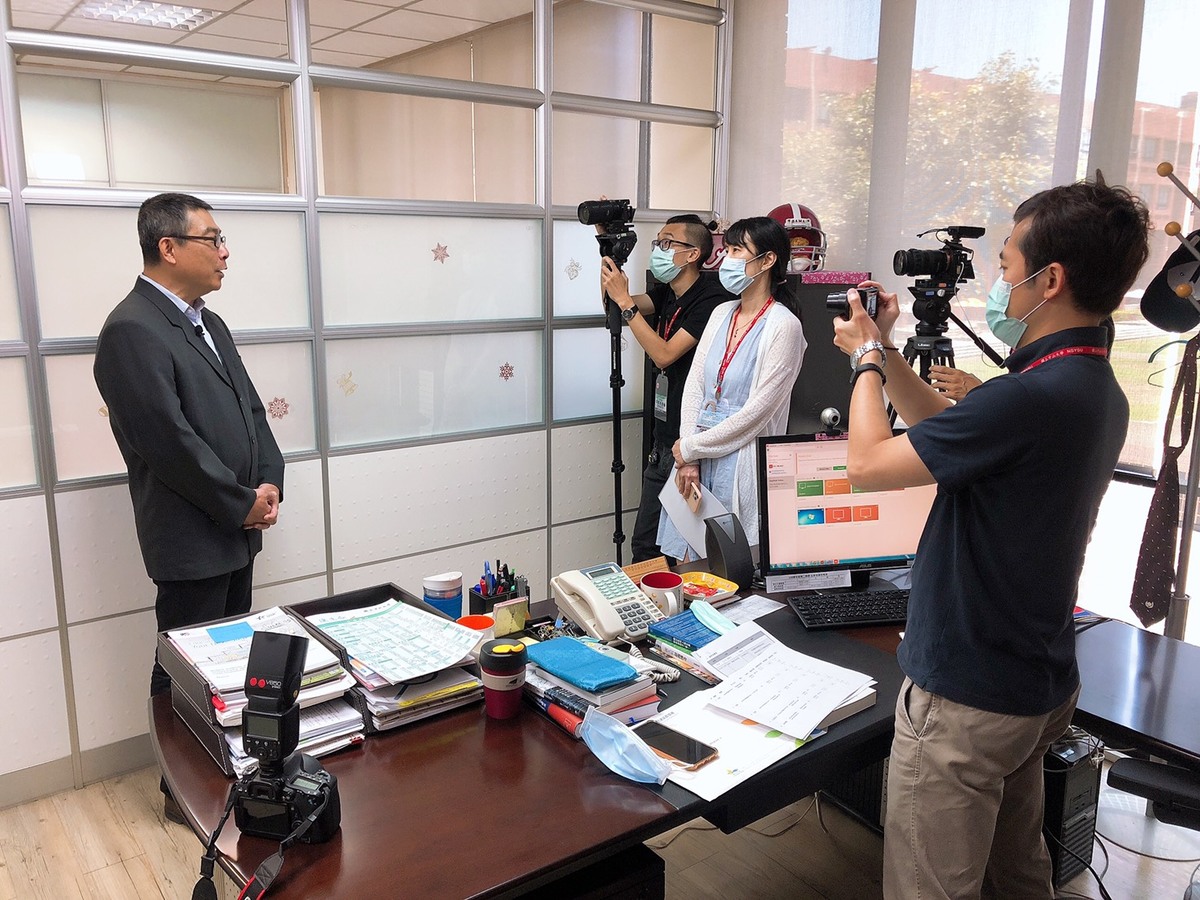
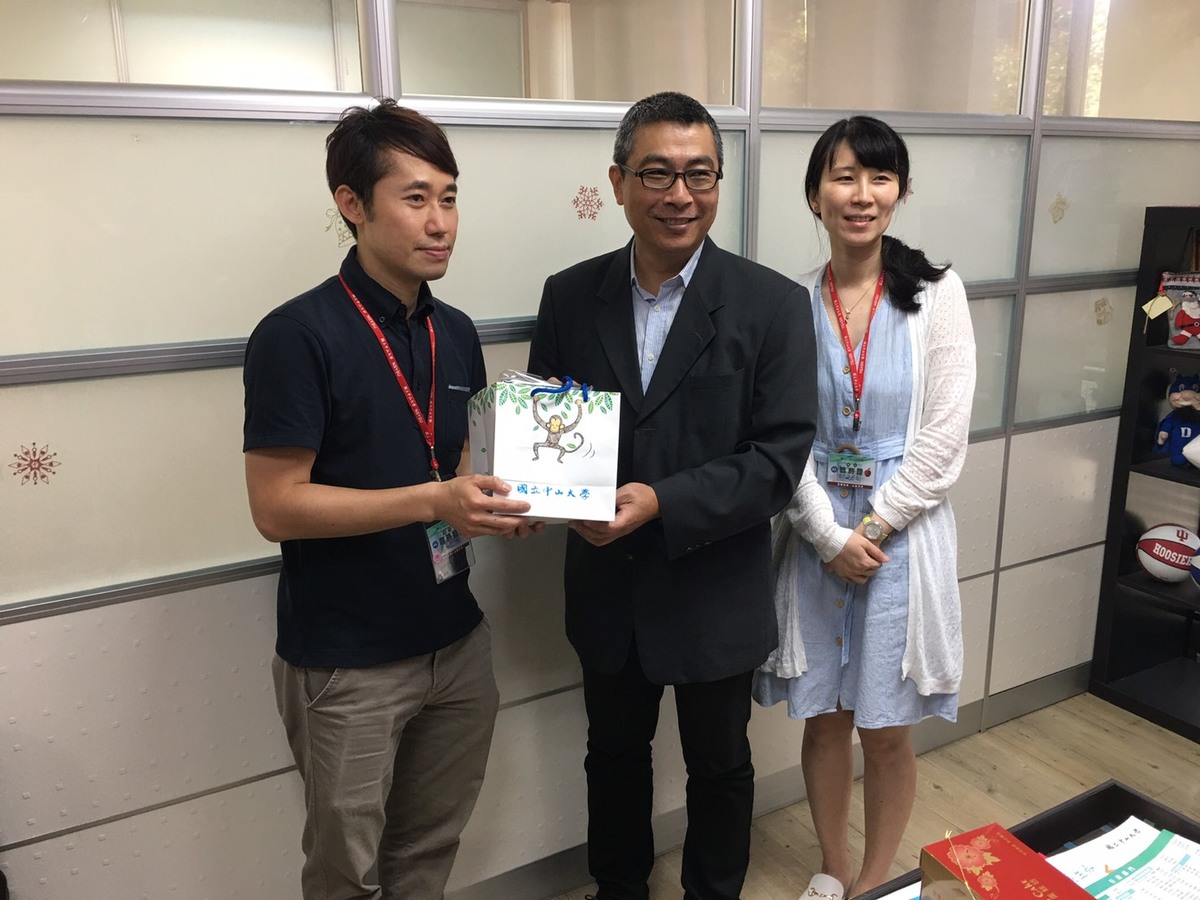
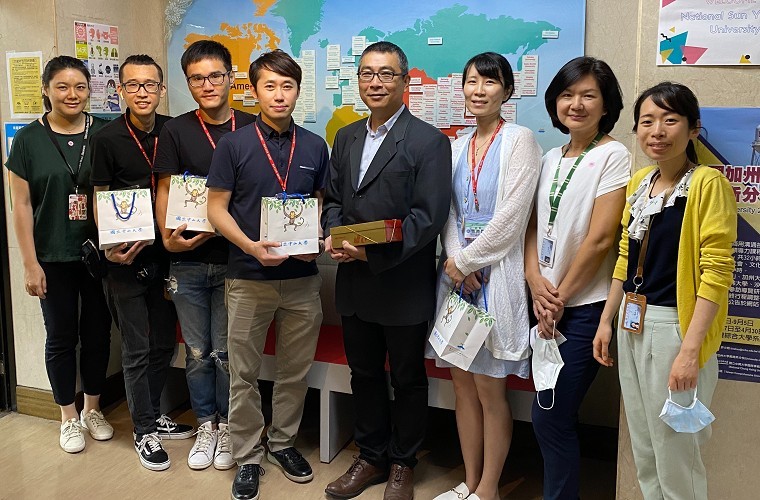
(Provided by the Office of International Affairs) To respond to the COVID-19 pandemic, starting from January, National Sun Yat-sen University has been implementing different epidemic-prevention measures on campus and carrying out the policies of the Central Epidemic Command Center to safeguard the health of the students, faculty, and staff. NSYSU's epidemic prevention measures have gained acknowledgment both on and off-campus and attracted the attention of the Association of International Cultural and Educational Exchange Taiwan (AICEE Taiwan). AICEE visited the campus for an interview on measures taken by the higher education institutions in Taiwan during the pandemic. AICEE conducted interviews with Senior Vice President Professor I-Yu Huang, Vice President for International Affairs Professor Chih-Wen Kuo, and eight Taiwanese and international students. The interview video will be available on social media in Taiwan and abroad to present a model of epidemic prevention for future reference.
Senior Vice President Huang said that National Sun Yat-sen University was one of the first institutions to establish a working group for epidemic prevention this year on January 26th to discuss and plan the related measures. He also pointed out that NSYSU was the first University in Taiwan to postpone the start date of the spring semester on January 31st. When the new semester began, all classrooms have been disinfected three times a day. A total of 35 body temperature check stations and two quarantine dorms were established. The University also arranged pick-up of international students to the dorms for quarantine. Starting from April 10th, all visitors are required to register when entering the University facilities. All measures for effective epidemic prevention are to ensure there are no cases of COVID-19 on campus. Although these measures have caused minor inconveniences to the members and visitors of the University, Senior Vice President Huang said he hopes everyone supports the epidemic-prevention efforts, so we can continue to study on the beautiful NSYSU campus.
Vice President Kuo shared his observations on the influence of the pandemic on international mobility and related programs. He said that many international exchange programs had to be postponed or canceled. Many of our students returned to Taiwan before finishing their exchange program abroad, and many international exchange students at NSYSU were called back to their home universities or had to resign from their exchange programs. The Office of International Affairs has been in close cooperation with international partner universities to respond to these changes. Affected students could choose to postpone their participation in the exchange programs to the next semester or continue the program via distance learning and get the required credits.
Wei-Hsiang Hung, a fourth-year bachelor student at the Department of Information Management, went to the US for exchange and returned to Taiwan before the end of his program. In the interview, he said that having to use a foreign language to deal with daily issues is an excellent opportunity for personal growth, which is why he has been looking forward to joining an overseas exchange program since his freshman year. Although his overseas study was interrupted by the pandemic, Hung hopes to go abroad again when the epidemic is over. Now that many courses at NSYSU are taught online, he believes that e-learning is the right solution on campus to prevent the spread of the virus as it helps keep social distance and lowers the risk of contagion.
Asih Purwanti, an Indonesian doctoral student at the Institute of Political Science, said that from early February, the international students received emails from the Office of International Affairs with the most recent information on the epidemic and the related preventive measures undertaken by the University and the government. They were also asked to fill out questionnaires for the University to trace students' travel history and the places they visited during the Tomb Sweeping Day long weekend. What is more, any person entering the University facilities has to have their temperature taken and have their hands disinfected with alcohol. The establishment of quarantine dorms left a long-lasting impression on Purwanti. She highly appraises the overall achievements in the prevention of the epidemic in Taiwan. The government's policies, such as traveling restrictions and postponing of the spring semester, met with citizens' support. These are the main reasons why Taiwan became a model country for epidemic prevention.
Besides interviewing the students and faculty, AICEE also inquired about the tools and equipment for epidemic prevention. The equipment includes infrared thermography and remote temperature sensors at the entrances and partition boards in restaurants.
(Edited by Public Affairs Division)
Senior Vice President Huang said that National Sun Yat-sen University was one of the first institutions to establish a working group for epidemic prevention this year on January 26th to discuss and plan the related measures. He also pointed out that NSYSU was the first University in Taiwan to postpone the start date of the spring semester on January 31st. When the new semester began, all classrooms have been disinfected three times a day. A total of 35 body temperature check stations and two quarantine dorms were established. The University also arranged pick-up of international students to the dorms for quarantine. Starting from April 10th, all visitors are required to register when entering the University facilities. All measures for effective epidemic prevention are to ensure there are no cases of COVID-19 on campus. Although these measures have caused minor inconveniences to the members and visitors of the University, Senior Vice President Huang said he hopes everyone supports the epidemic-prevention efforts, so we can continue to study on the beautiful NSYSU campus.
Vice President Kuo shared his observations on the influence of the pandemic on international mobility and related programs. He said that many international exchange programs had to be postponed or canceled. Many of our students returned to Taiwan before finishing their exchange program abroad, and many international exchange students at NSYSU were called back to their home universities or had to resign from their exchange programs. The Office of International Affairs has been in close cooperation with international partner universities to respond to these changes. Affected students could choose to postpone their participation in the exchange programs to the next semester or continue the program via distance learning and get the required credits.
Wei-Hsiang Hung, a fourth-year bachelor student at the Department of Information Management, went to the US for exchange and returned to Taiwan before the end of his program. In the interview, he said that having to use a foreign language to deal with daily issues is an excellent opportunity for personal growth, which is why he has been looking forward to joining an overseas exchange program since his freshman year. Although his overseas study was interrupted by the pandemic, Hung hopes to go abroad again when the epidemic is over. Now that many courses at NSYSU are taught online, he believes that e-learning is the right solution on campus to prevent the spread of the virus as it helps keep social distance and lowers the risk of contagion.
Asih Purwanti, an Indonesian doctoral student at the Institute of Political Science, said that from early February, the international students received emails from the Office of International Affairs with the most recent information on the epidemic and the related preventive measures undertaken by the University and the government. They were also asked to fill out questionnaires for the University to trace students' travel history and the places they visited during the Tomb Sweeping Day long weekend. What is more, any person entering the University facilities has to have their temperature taken and have their hands disinfected with alcohol. The establishment of quarantine dorms left a long-lasting impression on Purwanti. She highly appraises the overall achievements in the prevention of the epidemic in Taiwan. The government's policies, such as traveling restrictions and postponing of the spring semester, met with citizens' support. These are the main reasons why Taiwan became a model country for epidemic prevention.
Besides interviewing the students and faculty, AICEE also inquired about the tools and equipment for epidemic prevention. The equipment includes infrared thermography and remote temperature sensors at the entrances and partition boards in restaurants.
(Edited by Public Affairs Division)
Click Num:
Share
